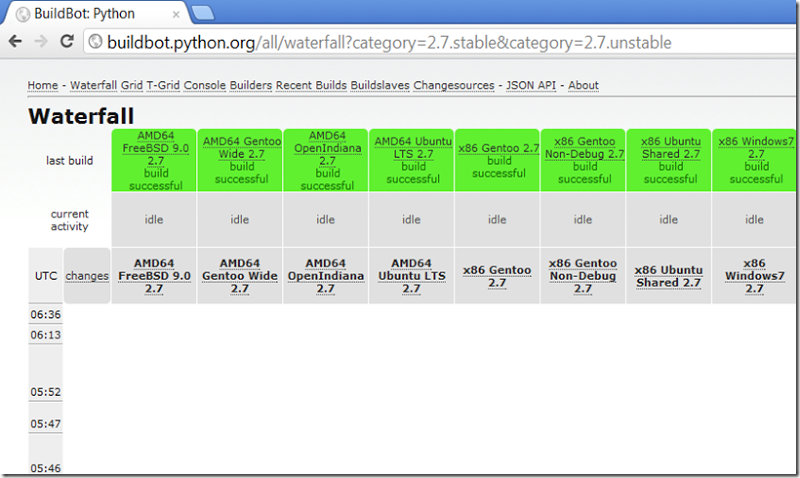Buildbot Part I - Setting Up
Aug 2, 2012
2 min read
All-Topics
by mariangemarcano
Contributor
Buildbot is a Python-based continuous integration system that consists of a buildmaster and one or more buildslaves, you can check it out on github.
The buildmaster decides what, when and how the system is build, it has a configuration file called master.cfg where the build process is defined. On the other hand, the buildslaves handle the execution of the commands and return results to the master.
The following is a graph (from buildbot’s wiki) which shows buildbot architecture supported repositories and notifiers.
Setting Up
To setup on windows, the master and slaves require:
- Python 2.7 http://www.python.org/download/ and setuptools http://pypi.python.org/pypi/setuptools/0.6c11
- Twisted http://twistedmatrix.com (I’m using 12.1.0 for Python 2.7 64 bits)
- Twisted requires PyWin32 in order to spawn processes on Windows http://sourceforge.net/projects/pywin32/ (downloaded pywin32-217.win-amd64-py2.7)
Additionally, master requires:
- sqlite3: http://www.sqlite.org (sqlite-dll-win32-x64-3071300)
- Jinja2: http://jinja.pocoo.org/ (http://pypi.python.org/pypi/Jinja2/2.6)
- SQLAlchemy http://www.sqlalchemy.org/ (SQLAlchemy-0.7.8)
- SQLAlchemy-Migrate http://code.google.com/p/sqlalchemy-migrate/ (sqlalchemy-migrate-0.7.1.tar)
Install buildbotmaster (http://buildbot.googlecode.com/files/buildbot-0.8.6p1.tar.gz) and buildbotslave (http://buildbot.googlecode.com/files/buildbot-slave-0.8.6p1.tar.gz)
For this example, I installed both on the same machine. If the installation went ok, you should be able to check their versions:
The following steps create and start the master and slave:
Create BuildbotMaster
C:\Python27\Scripts>buildbot create-master -r C:\BuildMasterCreate BuildbotSlave
C:\Python27\Scripts>buildslave create-slave C:\BuildSlave localhost:9989 BuildSlave01 mysecretpwdStart BuildbotMaster
C:\Python27\Scripts>buildbot start c:\BuildMasterStart BuildbotSlave
C:\Python27\Scripts>buildslave start c:\BuildSlaveif everything went fine, you should see a page like the following:
You can check for errors on C:\BuildMaster\twistd.log and C:\BuildSlave\twistd.log.
Who is using buildbot: Python, Mozilla, Google Chromium and others. The following shows Python 2.7 waterfall page:
On my next post, I’ll show you how to run automated builds and tests for a .NET application hosted on git/codeplex using buildbot.
License
This article, along with any associated source code and files, is licensed under The Code Project Open License (CPOL)



